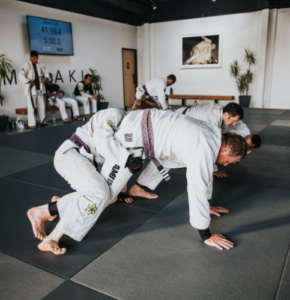
Enhancing your self-defense skills is no longer an option; it’s a necessity. Whether you’re walking home late at night, traveling alone, or just want to feel more secure in your daily life, it’s important that you know how to protect yourself.
Unfortunately, not many people know where to begin when it comes to improving their techniques. It’s vital to do your research so that you can follow the most recommended procedures.
In this article, we are going to take a look at eight effective strategies that will enhance your skills and help you truly master the art of self-defense.
Understand Legal Boundaries
It’s essential to understand the legal aspects of self-defense. Knowing your rights and the laws in your area can help you make informed decisions in a dangerous situation, particularly if you are using a firearm.
Researching different cases, such as the Jerome Ersland case, can be beneficial. If you are a concealed carrier, it’s a good example of what can go potentially wrong in a self-defense shooting.
It’s also essential that you are aware of the implications of your actions. In some cases, you may need to prove that you acted in self-defense. Documenting the incident and seeking legal advice can help protect your rights.
Take Self-Defense Classes
Self-defense classes offer structured training and expert guidance to help you develop your skills. They can also be a great way to meet like-minded individuals and build a supportive community.
Look for classes that focus on practical techniques and real-world scenarios. Martial arts like Tai Chi, Krav Maga, Brazilian Jiu-Jitsu, and Muay Thai are known for their effective strategies.
Training with experts not only improves your technical skills but also builds your confidence and mental preparedness. The guidance and feedback from experienced instructors can help you refine your techniques and develop a deeper understanding of defense principles.
Practice Situational Awareness
Situational awareness is your first line of defense It involves being aware of your surroundings and recognizing potential threats before they escalate.
To improve your situational awareness, start by paying attention to your environment. Notice the people around you, identify exits and be mindful of unusual behavior. Simple practices like keeping your head up and avoiding distractions can make a significant difference and will help you avoid danger.
Learn De-Escalation Techniques
De-escalation techniques are essential for preventing conflicts from turning violent. By learning how to calm a situation, you can avoid physical confrontations altogether.
Start by maintaining a calm and assertive demeanor. Speak in a steady, confident voice, and use open body language to show that you are not a threat. Avoid aggressive or confrontational language, as this can escalate the situation.
Identify Objects That Double as Self-Defense Tools
In dangerous settings, anything within your reach can become a weapon. Everyday objects like keys, pens, and even umbrellas can be used to defend yourself.
Learn to identify these items and their benefits. For example, holding your keys between your fingers can turn them into a makeshift knuckle duster. A sturdy pen can also be used to jab at sensitive areas.
Build Physical Fitness
Physical fitness plays a crucial role in self-defense. Being in good shape can improve your stamina, strength, and agility, all of which are beneficial in a deadly situation.
Start by incorporating regular exercise into your routine. Cardio workouts like running, swimming, or cycling can improve your endurance. Strength training exercises like push-ups, squats, and weightlifting can build muscle and increase your power.
Leverage Technology for Safety
Technology can be a powerful ally in your self-defense strategy. There are numerous devices designed to enhance personal safety and provide immediate assistance in emergencies.
Different applications offer GPS tracking, emergency alerts, and direct connections to emergency services. In addition, you could consider carrying a personal alarm or wearable safety device. These tools can emit loud sounds or send distress signals, attracting attention and deterring potential attackers.
Practice Regularly
Finally, consistent practice is key to maintaining and improving your self-defense skills. Regular practice can help reinforce muscle memory and keep your abilities sharp.
Consider setting goals and tracking your progress. This can motivate you to stay committed and you can measure your improvement over time.
Final Words
Enhancing your self-defense skills is a valuable investment in your personal safety and well-being. By following these effective strategies, you can build confidence, stay prepared, and protect yourself in various scenarios.
Remember, self-defense is not about seeking confrontation but about empowering yourself with the tools and knowledge to stay safe.






